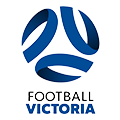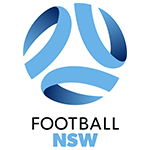Cooma Tigers are a pleasant surprise. Scratch the surface, and the newly-crowned ACT champions are not what you'd expect them to be.
A sleepy country town at the foothills of the Snowy Mountains isn't renowned as a footballing oasis, but it is.
Beware Bonnyrigg White Eagles, the champions of NSW, who will play Cooma in the National Premier Leagues play-offs. There is a lot more to the Tigers than meets the eye.
It was the Snowy Mountains Hydro Scheme which changed the demographics of Cooma - historically a sheep and cattle grazing town. During the peak construction years of 1950s and 1960s, the town's population grew five-fold to almost 10,000, boosted mostly by migrant workers from Europe. At a flag-raising ceremony in 1959, 27 nationalities were represented.
And what did these workers do in their spare time? Play football, of course.
At one stage, Cooma had its own 10-team competition, each representing a different nationality. Former first division players from Europe were among those gracing the fields of Nijong Oval. By 1960, the best of these players were pulled in to play for the Tigers - who had been formed eight years earlier - in the ACT competition.
Multi-cultural? In one memorable game, the Tigers fielded 13 different nationalities on the teamsheet. Cooma reached two grand finals in the 1960s, had three players in the ACT team which hosted Chelsea in 1965, and sometimes drew 1,000 fans to their home matches
The completion of the Snow Mountains Scheme (1972) not only affected the town, but, of course, the football club. But after years in the doldrums - flirting between amateur football, a spell playing in the NSW Far South Coast league, and the lower leagues of the ACT - the Tigers are back with a vengeance.
Since being promoted back to the top level of ACT football 12 years ago, Cooma have won two grand finals, and this year have finally broken through for their maiden championship. They're not be be underestimated.
For a start, their coach, Gabriel Wilk, is a former Argentine professional who was good enough to make the train-on squad for the famous 1979 national youth team where he spent weeks training with Diego Maradona.
A junior at Racing Club, Wilk went on to play for Quilmes, where he won a metropolitan title (1978), lower league sides Aldovisi and Atletico Alvarado, and Uruguayan heavyweights Penarol.
Wilk was lured to Australia when Queanbeyan-based Inter Monaro were promoted to the old NSL (1984), and has stayed in the region ever since. He's been coaching at Cooma for 14 years, and these days is assisted by his former Racing teammate Hugo Gimenez, who - like Wilk - came to Australia to play in the NSL (Parramatta Eagles and Morwell Falcons).
South American coaches, and a South American style. Former Sydney FC squaddie Robbie Cattanach and former Australian under-17 international Stephen Domenici plunder most of the goals, ably assisted by Goran Josifovski, who exorcised some demons in the decisive league match against Belconnen United.
It was Josifovski's inclusion in the side against the 'Blue Devils' two years ago - when he hadn't been named on the teamsheet - which robbed the Tigers of their maiden championship. The result was reversed, handing Belconnen the title instead. Some might say justice was done when Josifovski grabbed a brace against the same opposition a few weeks ago to spark wild celebrations at the Nijong Oval clubhouse.
South American imports Cristobal Soza and Julian Borgna add extra quality to a Cooma side which has emerged as a genuine powerhouse of ACT football over the past five years, thanks in no small way to the generosity of club backer, local businessman Mick Klima. It is Klima's passionate support which has allowed the Tigers to assemble such a competitive squad, one which plays in Cooma but trains at the AIS in Canberra, where they will host Bonnyrigg White Eagles.
Adding to their football development, in recent years Cooma have toured South America - playing games against the reserve teams of Boca Juniors, Argentinos Juniors, Huracan, Racing, Colo Colo and Universidad de Chile - and Hong Kong - playing against Rangers and Happy Valley. Not bad for a small team from the Monaro plains.
''We have everything we need,'' says Wilk. ''I couldn't have better conditions to work with.''
Klima has been with the Tigers for 50 years, ever since he strapped on the boots for the under-9s, and is understandably proud of the progress of a club which now boasts around 500 registered players. While the first grade squad has only four locals, the vast majority of junior and female players come from Cooma, where the Tigers compete with rugby, rugby league and AFL for a limited talent base.
Now the Tigers are about to step onto the national stage for the first time, with arguably the toughest draw of the NPL play-offs. Nervous? ''Don't worry about us, we'll kill them mate,'' says Klima.
Should we doubt him?








